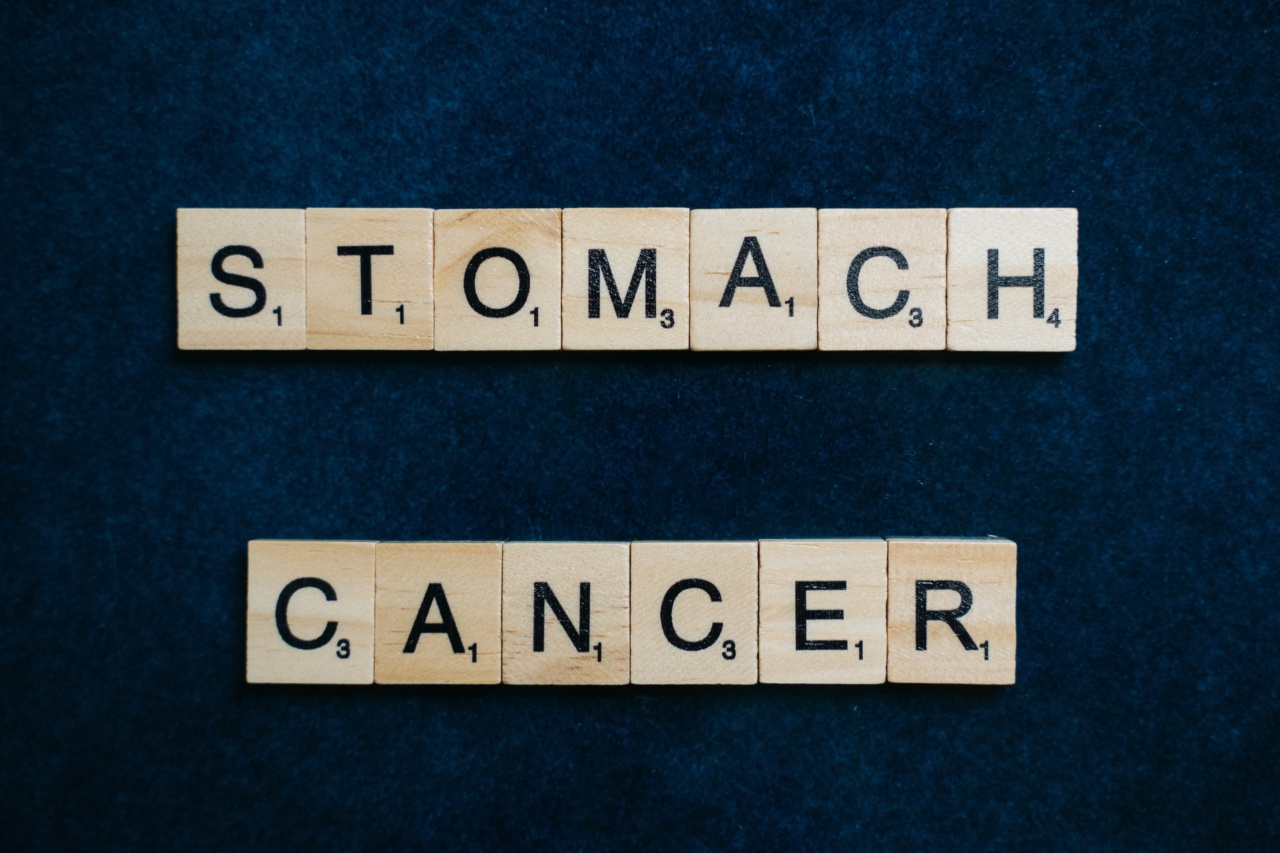Stomach cancer, also known as gastric cancer, is a serious and potentially life-threatening disease. It affects millions of people worldwide and is one of the leading causes of cancer-related deaths.
While there are several risk factors associated with stomach cancer, recent studies have shown that foodies may be more prone to developing this type of cancer.
1. Excessive consumption of processed foods
One of the main reasons why foodies are at a higher risk for stomach cancer is their excessive consumption of processed foods.
Foodies often indulge in fast food, ready-to-eat meals, and snacks that are packed with preservatives, additives, and artificial flavors. These processed foods have been linked to an increased risk of stomach cancer due to their high sodium content and the presence of carcinogenic compounds.
2. Heavy intake of spicy foods
Foodies are known for their love of spicy foods, but this preference can also put them at risk for stomach cancer.
Spicy foods, especially those that contain chili peppers or hot spices, can irritate the lining of the stomach and eventually lead to the development of gastric cancer. Excessive consumption of spicy foods can also increase the production of stomach acids, which further contributes to the risk of cancer.
3. Lack of dietary diversity
While foodies often explore a wide range of cuisines, their diets may lack diversity when it comes to the types of foods they consume.
A diet that is predominantly focused on a few specific types of cuisine or ingredients can lead to nutritional imbalances and deficiencies. These imbalances can weaken the immune system and make individuals more susceptible to various diseases, including stomach cancer.
4. High alcohol consumption
Foodies often indulge in pairing their meals with alcoholic beverages, which can significantly contribute to their risk of developing stomach cancer.
Excessive alcohol consumption has been linked to an increased risk of gastric cancer, as it can damage the lining of the stomach and increase the production of harmful substances that promote the growth of cancer cells.
5. Food contamination and poor food handling practices
Foodies are passionate about trying different foods, which may come from various sources and undergo different handling processes.
Poor food handling practices, such as improper washing or storage, can lead to contamination with harmful bacteria like Helicobacter pylori. This bacterium is a known risk factor for stomach cancer and can be present on raw or undercooked food items.
6. Overreliance on cured and smoked foods
Foodies often enjoy cured and smoked foods, such as smoked meats, bacon, and pickled vegetables. However, these types of foods can contain high levels of nitrites and nitrates, which are preservatives used to enhance flavor and extend shelf life.
Consumption of these compounds has been linked to an increased risk of stomach cancer, as they can react with stomach acids to form carcinogenic compounds.
7. Prolonged exposure to food additives and food coloring
The foodie culture often celebrates visually appealing dishes, which can lead to the excessive use of food additives and coloring agents. These additives may enhance the appearance of food but can be harmful when consumed in large quantities.
Some food additives and coloring agents have been associated with an increased risk of stomach cancer due to their potential carcinogenic properties.
8. Lack of emphasis on healthy eating practices
Many foodies prioritize the indulgence and enjoyment of food over its nutritional value. While it is important to appreciate good food, neglecting healthy eating practices can have significant consequences, including an increased risk of stomach cancer.
A diet that lacks fruits, vegetables, whole grains, and other essential nutrients can weaken the body’s defenses and make individuals more susceptible to cancer.
9. Obesity and overweight
Foodies often have a keen interest in trying different cuisines and dishes, leading to a higher likelihood of overeating.
The excessive consumption of calorie-rich foods can contribute to obesity and overweight, which are known risk factors for various types of cancer, including stomach cancer. The accumulation of excess fat in the body can promote inflammation and disrupt hormonal balances, increasing cancer risk.
10. Lack of awareness and regular screenings
Lastly, as foodies focus on the enjoyment of food, they might neglect their overall health and fail to prioritize regular health check-ups and screenings. Early detection plays a crucial role in the successful treatment of stomach cancer.
Without regular screenings, any potential signs or symptoms may go unnoticed until the disease has progressed to an advanced stage.
Conclusion
While being a foodie in itself does not guarantee the development of stomach cancer, the lifestyle and dietary choices commonly associated with foodies can increase the risk.
It is important for food enthusiasts to be mindful of their food choices, prioritize a diverse and balanced diet, and maintain a healthy lifestyle. Regular check-ups, screenings, and awareness about the risks associated with their culinary indulgences are key to reducing the risk of stomach cancer.































